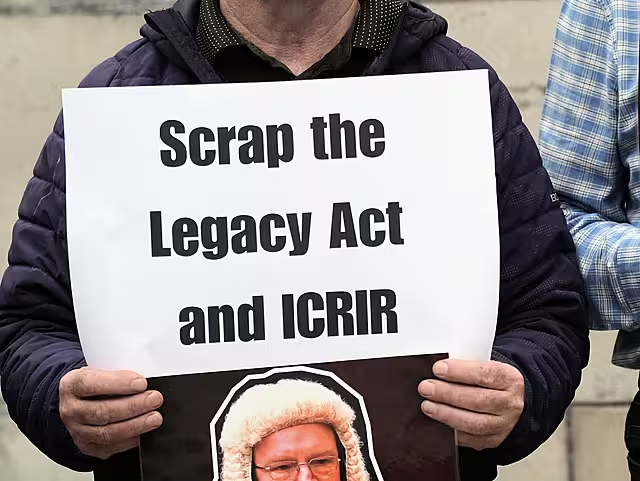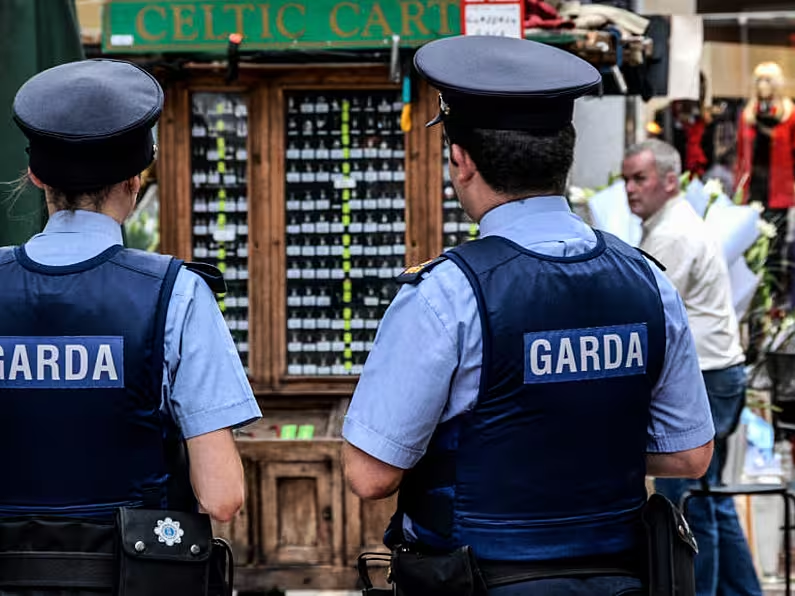By David Young, PA
Britain's Northern Ireland secretary has said he appreciates why families of some Troubles victims remain sceptical about a new investigatory and truth recovery body.
Hilary Benn said he knows reform of legislation underpinning the Independent Commission for Reconciliation and Information Recovery (ICRIR) is required to secure the confidence of bereaved relatives.
The ICRIR was set up by the last government as part of its contentious Legacy Act.
While the UK Labour government has vowed to repeal parts of the Act, including the contentious offer of conditional immunity for perpetrators of Troubles killings, it has decided to retain the commission.
However, last year the Court of Appeal in Belfast ruled that a UK government veto power over what sensitive material can be disclosed to families by the commission is incompatible with human rights laws.

The court also found that the work of the commission does not provide victims and their next of kin adequate means to participate in its processes.
The Appeal Court judges did uphold the operational independence of the commission’s structures.
Some families who lost loved ones during the conflict have vowed not to engage with the commission, claiming it lacks the teeth and independence to properly re-examine their cases.
Mr Benn, writing in Saturday’s Irish News, insisted he was committed to making changes.
“Everybody I have spoken to agrees that there needs to be a means of conducting investigations and of recovering information,” he wrote.
“And we do now have, for the first time, an independent judge-led commission, responsible for doing both these things.
“I am the first to acknowledge that the legislation that established the commission needs to be changed and I appreciate why, after all these years, and given the origins of the Legacy Act, there is scepticism about it.
“I know that reforms will be needed to secure the confidence of families.
“But a growing number of requests for investigations and information are now being made to the commission, over 120 at the last count, and the Northern Ireland Courts have been clear that it has the powers it needs to carry out independent, human rights-compliant investigations.
“What’s more, the legislation I will propose will ensure that the commission is, in specific circumstances, able to hold public hearings, take sworn evidence from individuals, and ensure families have effective representation.”
Mr Benn said one of the advantages of the commission was that it can quickly get to work, as he noted that its team of investigators was growing.
“The commission also has full police powers to help find answers without the long years of waiting that are often involved with public inquiries, which must establish staff, premises and processes from scratch,” he added.
“There are a number of families, including the family of (murdered GAA official) Sean Brown, whose inquests were brought to a premature end (by the Legacy Act), and who continue to experience great pain and suffering.
“For each of these families, I want to ensure that there is a full, thorough and independent investigation into the death of their loved one as soon as possible.
“I urge all those still searching for answers, for justice or for acknowledgement of what happened, to talk to the commission to hear and discuss what they propose, knowing that the government will strengthen it in our forthcoming legislation.”

The Labour MP said the “complexity and sensitivity” of dealing with the legacy of the past required a need to “build as broad a consensus as possible”.
“I am determined, with the help of all interested parties, including the Irish government, to achieve this,” he said.
“Nothing will ever ease the pain that so many families endure to this day.
“But we must do all we can to help society in Northern Ireland, which has come such a long way since 1998, to finally begin to heal the terrible wounds of the past and look to a better future together.”
On Thursday, the Court of Appeal in Belfast heard a UK government bid to overturn a judge’s order that a public inquiry be established in the Sean Brown case.
Mr Brown, 61, the chairman of Bellaghy Wolfe Tones GAA club in Co Derry, was ambushed, kidnapped and murdered by loyalist paramilitaries as he locked the gates of the club in May 1997.
No-one has ever been convicted of his killing.
In December, High Court judge Mr Justice Humphreys issued an order compelling the UK government to set up a public inquiry.
Mr Benn is challenging his ruling. The believes the case should instead be dealt with by the ICRIR.
For the latest Waterford News and Sport, tune into WLR News on the hour and download the WLR App for news on demand.












